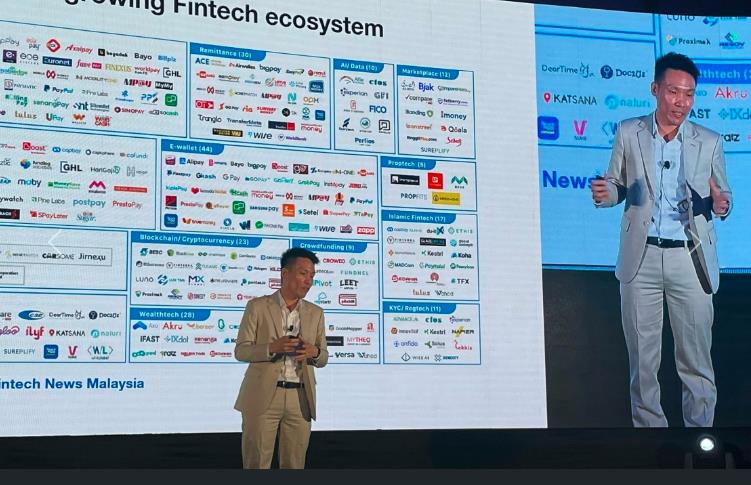MALAYSIA FINTECH MARKET VALUE EXPECTED TO REACH US$100 BLN IN THE NEXT FIVE YEARS

Malaysia's fintech market value is expected to double up to US$100 billion (US$1 = RM4.6720) in the next five years.
Fintech Association of Malaysia president Wilson Beh said currently the fintech market value is estimated at US$50 billion.
He said the development is heavily anchored and built upon a few key milestones which have been built in the market such as the development of DuitNow and the cross-border payment system.
"DuitNow is not only used in big cities such as Kuala Lumpur, Johor Bahru or George Town, for even if you go to smaller towns, cashless has become a norm.
"On cross-border payments, your e-wallet can be used to make real time transactions in Singapore and Thailand. This has been done and facilitated through Project Nexus and a few key collaborations among central banks in this region," he said in his keynote address at the Tech in Asia Conference 2024.
Beh said the development of electronic Know Your Customer (eKYC) process and the introduction of digital banks have also boosted the sector's market.
"The eKYC has also become mainstream, it has become a norm in Malaysia, and it will help the National ID initiative take form, riding on the eKYC.
"We have three digital banks, I think the market is anticipating two more," said Beh.
Meanwhile, he said Malaysia has also been constantly ranked number one in the global Islamic fintech index, underpinned by a strong Islamic finance industry.
Moving forward, he said the industry is looking out for the Consumer Credit Oversight Board (CCOB) task force's laws and regulations.
The CCOB under Bank Negara Malaysia, Securities Commission Malaysia (SC) and the Ministry of Housing and Local Government will be regulating innovative business models such as the buy now pay later (BNPL), said Beh.
According to Beh, the completion of phase three of Project Nexus will be a key development for the industry in the next few months.
"This promises the implementation of the next generation of cross-border payment, giving rise to more opportunities for a more unified ASEAN as an economic block.
"For Malaysia, this also has significant values especially as the country will be the ASEAN chair next year," he added.
